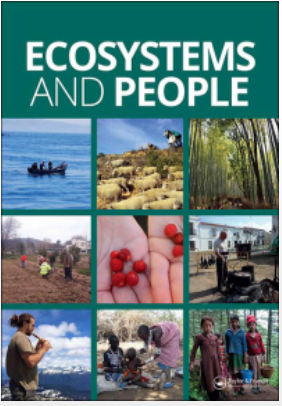The relationship between values and knowledge in visioning for landscape management: relevance for a collaborative approach
IF 3.7
Q1 Agricultural and Biological Sciences
引用次数: 2
Abstract
ABSTRACT Respecting connections between the diversity of values and forms of knowledge is essential to support a decision-making that fosters relationships between ecosystems and people. However, little theory has been developed for clarifying interactions between values and knowledge, and their relevance for environmental policy. We surfaced the overlooked relationship between values and knowledge by studying individual cognitive and emotional processes during a guided visioning exercise in the context of the multifunctional landscapes of Östergötland, Sweden. We investigated these cognitive processes using 30 semi-structured interviews and questionnaires organized around three types of relationships: vision ⇔ values, vision ⇔ knowledge, and especially values ⇔ knowledge. The analysis of the relationship between vision and values reveals that all types of values including core human values, relational, and intrinsic values are important in shaping the decision-making context in which landscape management visions arise. The relationship between vision and knowledge uncovers the mix of experiential and theoretical knowledge that informs the decision-making context. Interviews unfold three modalities in terms of how values and knowledge relate: i) linked and not necessarily connected (e.g. when individuals perceive a high conflict between their knowledge and their values leading to one construct silencing the other); ii) mutually reinforcing (e.g. when values and knowledge are seen as feeding into one another); and iii) intertwined (e.g. when individuals perceive that values and knowledge can co-exist). We discuss our findings in the context of their relevance for a collaborative decision-making process for balancing consensus and dissensus in multifunctional landscapes.景观管理远景中价值与知识之间的关系:与协作方法的相关性
摘要尊重价值观的多样性和知识形式之间的联系对于支持促进生态系统和人类之间关系的决策至关重要。然而,很少有理论能够阐明价值观和知识之间的相互作用,以及它们与环境政策的相关性。我们在瑞典Östergötland的多功能景观背景下,通过研究个人认知和情感过程,揭示了价值观和知识之间被忽视的关系。我们使用30个半结构化访谈和围绕三种类型的关系组织的问卷调查了这些认知过程:视觉⇔ 价值观、愿景⇔ 知识,尤其是价值观⇔ 知识对愿景和价值观之间关系的分析表明,包括人类核心价值观、关系价值观和内在价值观在内的所有类型的价值观在塑造景观管理愿景产生的决策环境中都很重要。视觉和知识之间的关系揭示了经验知识和理论知识的结合,为决策提供了信息。就价值观和知识的关系而言,访谈展现了三种模式:一)有联系但不一定有联系(例如,当个人认为他们的知识和价值观之间存在高度冲突,导致一种结构使另一种结构沉默时);ii)相辅相成(例如,当价值观和知识被视为相互渗透时);以及iii)相互交织(例如,当个人认为价值观和知识可以共存时)。我们在多功能景观中讨论我们的发现与平衡共识和分歧的合作决策过程的相关性。
本文章由计算机程序翻译,如有差异,请以英文原文为准。
求助全文
约1分钟内获得全文
求助全文
来源期刊

Ecosystems and People
Agricultural and Biological Sciences-Ecology, Evolution, Behavior and Systematics
CiteScore
7.80
自引率
11.30%
发文量
40
审稿时长
42 weeks
期刊介绍:
Ecosystems and People is an interdisciplinary journal that addresses how biodiversity and ecosystems underpin human quality of life, and how societal activities and preferences drive changes in ecosystems. Research published in Ecosystems and People addresses human-nature relationships and social-ecological systems in a broad sense. This embraces research on biodiversity, ecosystem services, their contributions to quality of life, implications for equity and justice, and the diverse and rich ways in which people relate to nature.
 求助内容:
求助内容: 应助结果提醒方式:
应助结果提醒方式:


